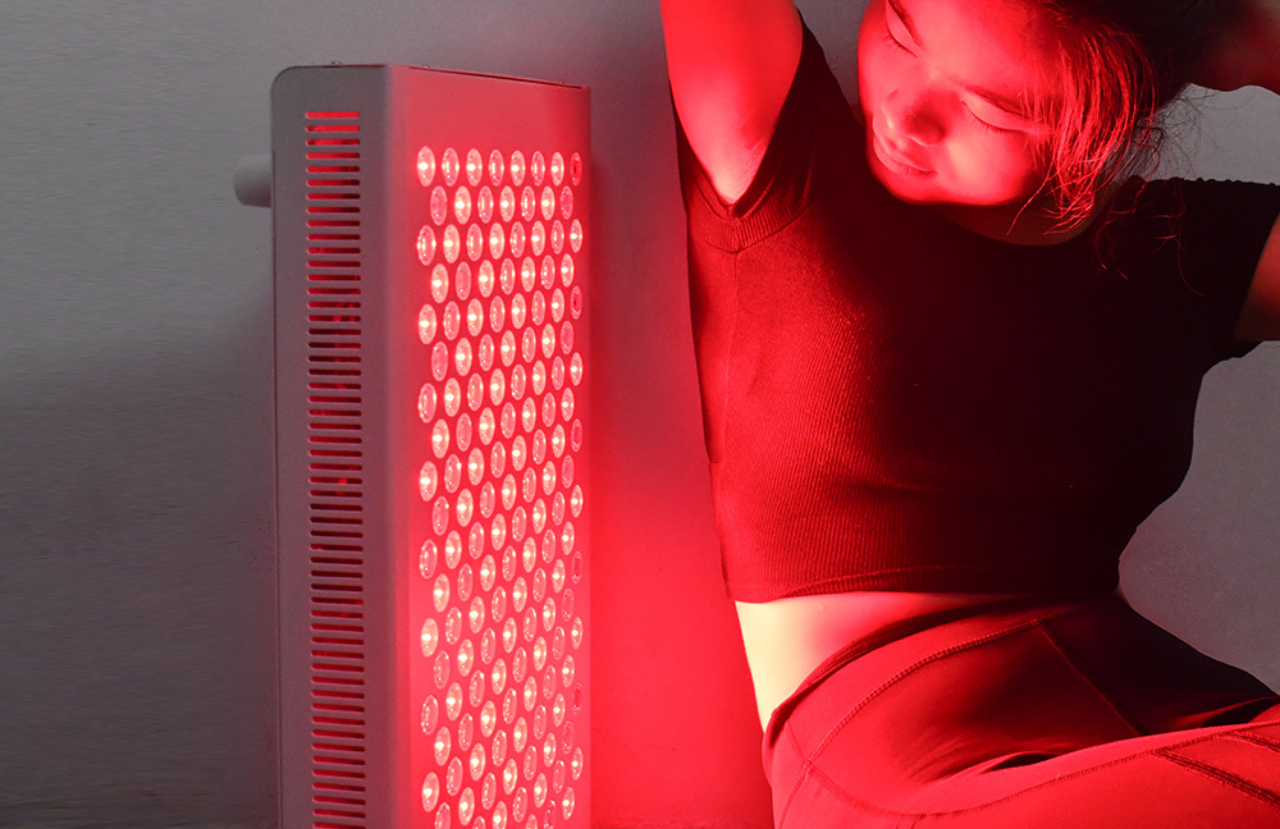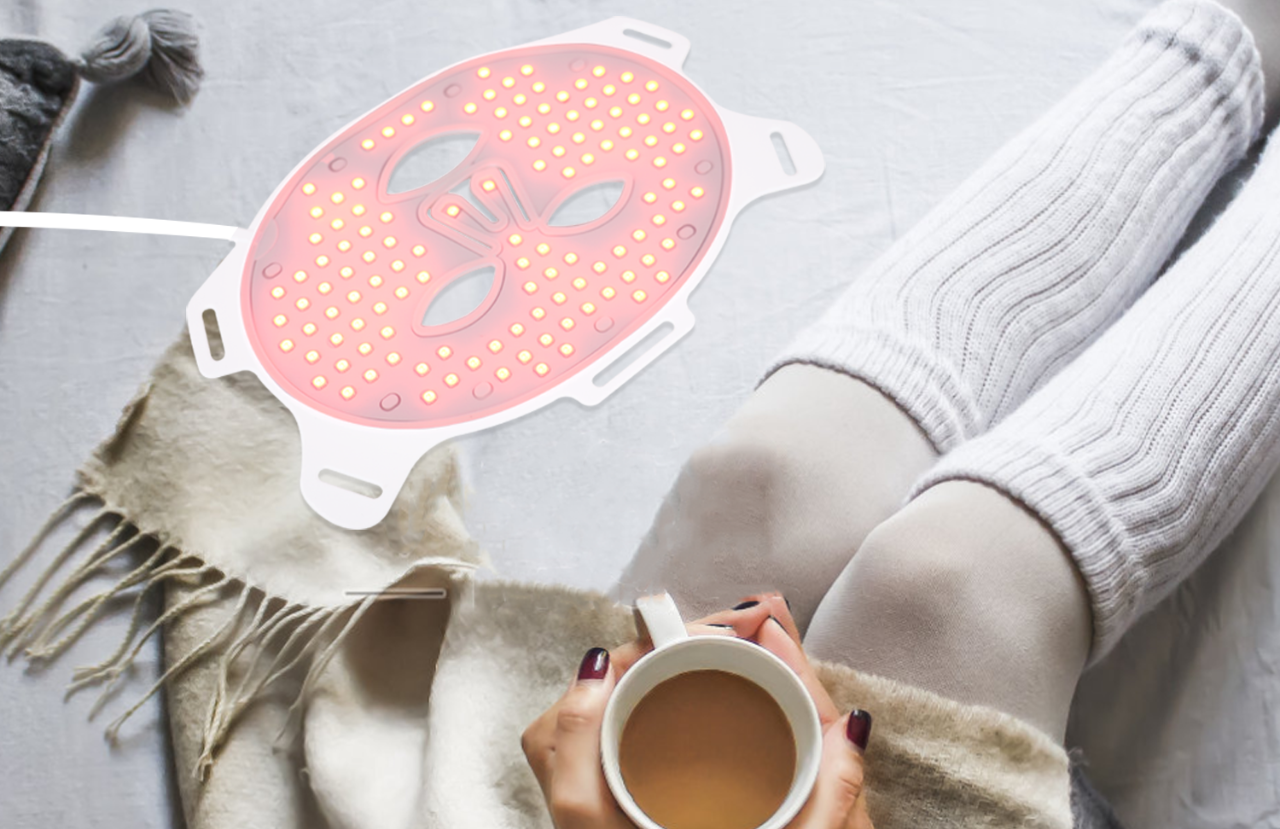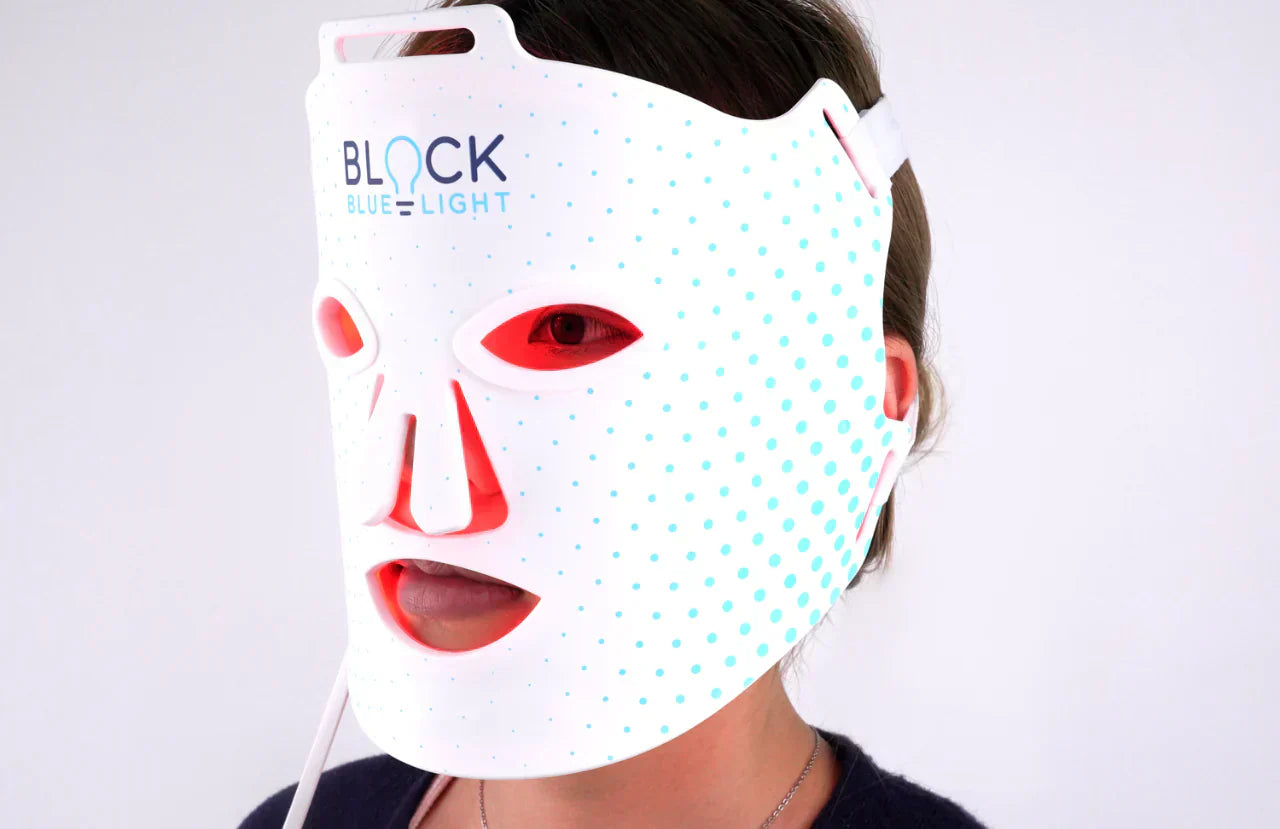Do you regularly struggle to fall asleep or wake up feeling unrefreshed? If so, you may be producing insufficient melatonin. Melatonin is a naturally occurring hormone that we should be paying attention to if we want quality sleep and good health on all levels.
But what exactly is melatonin and how does it work? Keep reading as we explore this hormone and the research behind it.
Melatonin and How It's Produced

First discovered in 1958, melatonin – or N-acetyl-5-methoxytryptamine – is a hormone produced from a neurotransmitter called serotonin and released by the pineal gland in the brain (1). It's commonly known as the "sleep hormone." Small amounts are released throughout the day, but the majority is pumped out at night, starting around 9 pm and staying at the highest levels during the night.
Melatonin controls our circadian rhythm – the sleep-wake cycle or body clock. But it doesn't act like a sleeping tablet causing you to pass out and feel groggy the next day. It simply indicates that it's time to wind down, relax and prepare for a night of restful sleep.
Melatonin is highly concentrated in the brain but also gets distributed via the bloodstream where it attaches to melatonin receptors in many other cells, tissues and organs.
So, what triggers it?
A photosensitive pigment in the retina of the eye detects waning light as the sun sets and signals a part of the brain − the suprachiasmatic nuclei (SCN) − to communicate with the pineal gland to release melatonin (2). On the other hand, when the sun rises, the pineal gland begins to suppress melatonin production, priming our body to wake up and start the day.
This is how melatonin production and a healthy circadian rhythm should work. However, our brains are sensitive to charge and there are several factors in our modern lives suppressing melatonin release and playing havoc with our health.
Why Low Melatonin Levels Occur

Our natural melatonin production is being impacted by artificial blue and green light emitted from screens, long work hours, working night shifts and bright office and home lighting. This light sends a message to our brain that it's still day time and suppresses melatonin (3).
It's especially true for children, as their eyes are more sensitive to light. One study found that children exposed to bright light in the evening had an 88% drop in melatonin, which remained suppressed for 50 minutes after the lights were out (4).
Melatonin's production is also impaired by:
- Aging
- Stress
- Smoking
- Drinking coffee
- Lack of exercise
- Poor nutrition
- Spending most of the day indoors out of natural light
- Change of season
- Travelling across time zones
This explains why so many of us don't get enough sleep!
Melatonin and Quality Sleep

Melatonin is most well-known for its ability to promote quality, deep, restorative sleep.
People with insomnia have lower levels of melatonin in their blood than sound sleepers, making it hard to fall asleep and stay asleep. These people often feel wired at night.
Studies on melatonin and sleep show that it (5, 6):
- Reduces the time it takes to fall asleep
- Increases total sleep time
- Reduces the number of awakenings during the night
- Improves sleep quality
- Increases time spent in rapid eye movement (REM) sleep
As we all know, a full night of good sleep makes us feel amazing. It has a knock-on effect on our mood, energy, focus, immunity, metabolism and more.
12 More Amazing Health Benefits of Melatonin
The presence of so many melatonin receptors in the body tells us that it's important for a healthy physiology. Science may not fully understand how big its impact on health is yet, but we do know it stretches far beyond sleep.
Here are 12 more science-based benefits of melatonin.
1. Regulates Circadian Rhythm

Melatonin plays a vital role in maintaining our circadian rhythm. But you probably don’t know that there is more to this than just telling us when to sleep and wake-up. It regulates many of our body functions, including body temperature, blood pressure, appetite, hormone production and blood sugar (7).
Optimal night time melatonin production is the key to correcting an out-of-sync circadian rhythm – this is especially important for people who do shift work and those experiencing jet lag.
2. Antioxidant and Anti-inflammatory Properties
Melatonin has powerful antioxidant properties that allow it to neutralize free radicals, protecting cells from oxidative damage (9).
In our modern lives, we're exposed to unnaturally high levels of free radicals from poor diet and lifestyle, pollution, sun exposure, infection and stress. Oxidative damage has been linked to inflammation, premature aging and chronic disease.
Luckily, melatonin is also involved in the production of other potent antioxidants, like the body's master antioxidant, glutathione (10).
3. Boosts Immunity

Are you struggling with low immunity or allergies? The answer to this may lie in your melatonin levels.
Melatonin receptors are found on a variety of immune cells, suggesting it has a much greater role in immunity than just improving sleep. It's involved in promoting the Th1 and Th2 immune responses which modulate the immune system, thus stimulating and suppressing different immune reactions as needed (11).
Additionally, by encouraging us to sleep well, melatonin allows our body and immune system an opportunity to rest and repair so we can robustly fight off infection.
4. Anti-Cancer Properties
Melatonin is a powerful anti-cancer hormone that protects us by improving sleep, boosting immunity and providing potent antioxidant properties. So, could the sky-rocketing cancer rates be linked to poor melatonin levels from the rise in artificial light pollution over the last several decades?
Research suggests melatonin causes cancer cell death and reduces tumour growth (12). A 2018 review study found that taking melatonin supplements – in conjunction with conventional treatment – reduced the risk of death and improved quality of life (13).
5. Supports a Positive Mood

Mood disorders like depression and anxiety are often accompanied by an out-of-whack circadian rhythm (8). Due to low serotonin levels, sufferers cannot synthesize sufficient melatonin and it makes getting to sleep a challenge. This compounds the problem because a poor night's sleep doesn't help our mood – it only puts us farther into a terrible mental space.
Healthy night time melatonin levels encourage good sleep for healthy brain function. It's a great supportive measure for those with mood disorders.
6. Boosts Brain Health
Melatonin may be one of the keys to healthy brain health and cognitive function. Unfortunately, we know levels are lower in older populations and this may be contributing factors to developing neurodegenerative conditions like Alzheimer's disease and Parkinson’s disease (14).
Melatonin has a protective effect on the brain thanks to its antioxidant and anti-inflammatory properties that defend the brain from the oxidative damage (15). By promoting good sleep, it also allows the body to improve brain health by cleaning toxic metabolic waste that accumulates in the brain during the day.
7. Encourages Human Growth Hormone Production
Melatonin stimulates the release of human growth hormone (HGH) – a compound involved in cell repair and growth that's released by the pituitary gland during sleep (16).
This is pretty exciting for bodybuilders and fitness enthusiasts because naturally boosting HGH supports a healthy metabolism, muscle growth, exercise performance and recovery.
8. Regulates Blood Sugar Levels and Reduces the Risk of Diabetes

Melatonin plays a key role in blood sugar regulation. It's involved in the function and survival of pancreatic beta-cells that are responsible for releasing insulin – a hormone that removes glucose from the bloodstream and transports it to be used as energy or stored (17).
Studies have also shown that poor sleep and an imbalance in the circadian rhythm causes insulin resistance. It means our cells can't take up much glucose and increases the risk of type-2 diabetes (18). By allowing us to get quality sleep, melatonin normalizes our insulin sensitivity and improves blood sugar levels.
9. Protects Vision
Sub-optimal melatonin levels can play havoc with our vision.
Melatonin and its receptors are found in the retina, where the antioxidant properties of the hormone protect the delicate structures of the eye. It also shields them from damage done by harsh digital screens and artificial lighting.
It's thought that increasing melatonin levels can reduce the risk of vision loss from age-related macular degeneration (AMD) (19). Studies also confirm that melatonin helps to regulate intraocular pressure (20). Interesting, right?!
10. Supports Cardiovascular Health
Heart disease is one of the major causes of chronic illness, putting an ever-increasing burden on the health system each year.
Melatonin supports heart health by reducing oxidative damage and chronic inflammation that are major risk factors for strokes and heart attacks.
Amazingly, research shows melatonin actually reduces cholesterol formation! It also lowers the risk of heart disease by encouraging deep reparative sleep and a healthy circadian rhythm, which relaxes blood vessels and regulates blood pressure (21).
11. Better Energy Levels

You're familiar with the fatigue, grogginess and poor productivity that comes with not getting proper sleep. Optimal melatonin levels at night help us to sleep better so we feel refreshed and energetic the next morning.
12. May Relieve Chronic Pain and Migraines
Improving melatonin levels may offer an exciting natural solution for those with chronic pain.
Researchers believe melatonin may act on opioid receptors in the brain to block pain signals. Studies confirm it reduces the frequency and severity of migraines and lowers pain scores in those with fibromyalgia – a chronic condition that presents with body aches and pains (22, 23).
15 Ways to Optimize Melatonin Production Naturally
If you're suffering from jetlag or struggling to get quality sleep it's an indication that your melatonin production is not where it should be.
Taking a melatonin supplement is a safe option, and it works. However, our bodies are amazing – they're designed to produce this hormone! All we need to do is provide the right environment for this to happen.
Here are some simple tips to encourage your body to produce more of this amazing hormone naturally.
1. Set a Digital Curfew
Staring at bright digital screens in the hours before bedtime is possibly the worse thing we can do for melatonin production. These devices contain small LEDs that emit artificial blue light which tricks our brain into thinking it is daytime. The brain can't tell the difference!
We suggest setting a digital curfew by turning off all screens and devices 2 hours before bed and keeping them outside the bedroom while you sleep. This will signal the brain to wind down and prepare for a night of quality sleep. Instead, try reading, listening to podcasts, playing games or chatting with family in the evening.
2. Use Blue Light Blocking Glasses


 While it's ideal to avoid bright light before bed, most of us want to work, watch TV, use social media or study at night. So, the best thing to do is purchase blue light blocking glasses to wear 2-3 hours before bed.
While it's ideal to avoid bright light before bed, most of us want to work, watch TV, use social media or study at night. So, the best thing to do is purchase blue light blocking glasses to wear 2-3 hours before bed.
Research confirms these glasses are your best friend if you want to improve natural melatonin production while still using blue light-emitting devices at night (24).
Our amber and red-tinted blue light glasses are available for adults and children and are stylish and super comfortable. They block out 100% of harmful blue light rays coming from TVs, laptops, tablets, smartphones and room lighting. Plus, we offer blue blocking glasses that fit over your existing prescription glasses.
3. Keep the Bedroom Dark
For optimal melatonin production, we must sleep in a completely dark bedroom. Even a small amount of artificial blue light seeping in confuses our brain.
Here are a few ways you can make sure your bedroom is an environment for optimal sleep:
- Remove light-emitting devices from the bedroom – chargers, TVs, computers, gaming devices, smartphones, tablets
- Don't use an electronic alarm clock, get an old-fashioned one
- Invest in black-out curtains
- Use a quality Sleep mask to block all remaining light out
4. Get More Natural Light

Exposure to adequate natural light during the day – especially in the morning – is vital to balancing our circadian rhythm (26). Unfortunately, many of us get to the office before sunrise and spend the day indoors, only getting home after sunset. This lack of natural light massively confuses the body-clock.
The solution is to prioritize spending time in natural light before midday. Eat your breakfast outside, take a morning walk or spend your tea or lunch break in the sun. If you can't get outside, try getting natural light by sitting next to a window.
5. Exercise

Much like natural light exposure during the early hours of the day, regularly exercising in the morning balances the circadian rhythm and optimizes melatonin levels at night.
A 2014 study found that people with high blood pressure who did aerobic exercise early in the morning spent longer in the deep-sleep stage and had lower nocturnal blood pressure (27).
6. Change Your Light Bulbs and Use Low Blue Lighting

 Sitting under bright room lighting late into the night is just as detrimental for melatonin production as watching TV or working in front of a computer. It isn't enough to avoid screens and wear blue light blocking glasses, because our skin also contains light receptors.
Sitting under bright room lighting late into the night is just as detrimental for melatonin production as watching TV or working in front of a computer. It isn't enough to avoid screens and wear blue light blocking glasses, because our skin also contains light receptors.
We recommend reducing the brightness and intensity of your light bulbs at home. Turn off all non-essential lights in your home and replace your other light bulbs with our low-colour temperature, warm orange Sweet Dreams Light Bulbs. They are 100% free of blue AND green light to support relaxation and a healthy circadian rhythm. We also have solutions such as our NoBlue Book Lights which are a very versatile tool to have!
 Our light bulbs can be used throughout your home as they provide illumination for you to work, read and cook. They're perfect for bedside lamps too.
Our light bulbs can be used throughout your home as they provide illumination for you to work, read and cook. They're perfect for bedside lamps too.
To find out more about the risks of conventional lighting solutions, read our blog on lighting here.
7. Eat a Good Diet and Lots of Micronutrients

A nutrient-dense, whole-food diet is essential for melatonin production.
We need to consume nutrients that support the production of the "happy" hormone, serotonin, and it's conversion to melatonin. This includes vitamin B3, B5, B6, zinc, magnesium, iron, and folic acid from leafy greens, fruit, nuts and seeds, whole grains, legumes, dairy products, eggs, fish and meat.
Additionally, some plants contain melatonin and may help to boost blood levels. This includes foods like (28, 29, 30):
- Tart cherries
- Asparagus
- Corn
- Tomatoes
- Beetroot
- Sweet potatoes
- Pomegranates
- Bananas
- Walnuts
- Flax seeds
- Oats
- Barley
8. Get More High-Quality Protein

To make melatonin, we need to consume an essential amino acid called L-tryptophan.
We must get it from these high-tryptophan foods as it's not made in the body:
- Meat and fish
- Dairy
- Eggs
- Nuts and seeds
- Beans and legumes
- Potatoes
- Oats
- Bananas
9. Support Your Gut Microbiome
The majority of our serotonin is actually made in the gut! So, we need to do the utmost to support a healthy gastrointestinal tract and a robust biome of beneficial gut bacteria for sufficient serotonin levels and resulting melatonin production (31).
We recommend eating plenty of fibrous fruits, vegetables and grains. You should also add more fermented foods to the diet, such as sauerkraut, kimchi, kefir and yogurt.
10. Minimize Caffeine Intake

Coffee suppresses melatonin and kicks off cortisol production, making us feel alert in the morning. But if we're chronically consuming caffeine – especially later in the day and at night – this trains the body to suppress melatonin and impacts our sleep quality (32).
Giving up coffee and other high caffeine beverages is the best option for people serious about boosting melatonin production naturally. Hardcore coffee fans can focus on getting their fix in the morning and limiting themselves to two cups per day. Keep away from coffee after midday if possible, and stick to pure water, herbal teas and fresh juice.
11. Stop Smoking

Research shows that people who habitually smoke cigarettes have lower levels of melatonin in their blood. This is because compounds found in cigarette smoke increase the metabolism and excretion of melatonin, lowering levels of the hormone (33).
It's advisable to stop smoking altogether, but it's especially important to avoid cigarettes during the evening and early hours of the morning.
12. Use Red Night Lights

It's not always easy or realistic to avoid all forms of light in the bedroom. Children may be afraid of the dark, and most of us need to walk to the bathroom in the night.
Our simple solution is to install red LED night lights in children's bedrooms, bathrooms and hallways. They use red LED light bulbs that emit absolutely NO blue light and will not suppress melatonin levels.

We also suggest keeping a red light Twilight Torch next to your bed in case you need to get around at night. This is a great alternative to the bright torch on your smartphone. You can use it in the night and go right back to sleep afterwards!
13. Relax with Yoga and Meditation

The stress hormone cortisol and melatonin work in opposition to each other. Cortisol is released at its highest level in the morning to give us energy and boost alertness, and melatonin reaches its highest levels at night. Or this is how it should work.
Unfortunately, mental and physical stress throws off this rhythm and triggers higher levels of cortisol at the wrong time, suppressing melatonin levels at night and makes us feel wired.
Finding a way to de-stress is so important for healthy melatonin levels.
One interesting study found that adult men who practiced yoga, breathing and meditation in the evening hours had greater blood melatonin levels and feelings of well-being (34).
14. Try Essential Oils

It is believed that inhaling relaxing essential oils increases melatonin production. A study in elderly people with dementia found that inhaling lavender essential oil 15 minutes before bed improved sleep time and quality (35). This is promising because we know melatonin levels are lower in older people and those with neurodegenerative conditions.
Try this sleep hack by inhaling lavender oil via an oil diffuser or adding it to a warm bath in the evening. You can also place a few drops of on your pillow before bed.
15. Try Red Light Therapy
Red and infrared light therapy is backed up by thousands of studies and is exciting for people with a circadian rhythm imbalance.
The therapy is natural and non-invasive, delivering low-energy red and near-infrared (NIR) light waves to the body via LED bulbs. These deep red colours are what we see when the sun goes down and this helps our mind and body to wind down and triggers the brain to get ready for sleep. Studies have found red light therapy before bed boosts melatonin production and regulates the circadian rhythm (25).
Try using our BlockBlueLight handheld red light device 20-50cm away from your skin for 10-15 minutes before bed and watch your sleeping patterns improve.
Final Thoughts
Naturally boosting your melatonin levels with the simple tips outlined here will have wide-reaching benefits on your energy, immunity, mood and more. Re-read them few times and implement what you can, adding more along the way. Your body will thank you.
Wishing you sweet dreams and good health!
Resources
- Malhotra et al. (2004). The therapeutic potential of melatonin: A review of the science. Available at: https://www.ncbi.nlm.nih.gov/pmc/articles/PMC1395802/
- Master et al. (2014). Melatonin, the hormone of darkness: from sleep promotion to Ebola treatment. Available at: https://www.ncbi.nlm.nih.gov/pmc/articles/PMC4334454/
- Touitou et al. (2017). Association between light at night, melatonin secretion, sleep deprivation and the internal clock: health impacts and mechanisms of circadian disruption. Available at: https://www.ncbi.nlm.nih.gov/pubmed/28214594
- Preschoolers exposed to night time light lack melatonin. (2018). Available at: https://www.sciencedaily.com/releases/2018/03/180305160151.htm
- Ferracioli-Oda et al. (2013). Meta-analysis: Melatonin for the treatment of primary sleep disorders. Available at: https://www.ncbi.nlm.nih.gov/pmc/articles/PMC3656905/
- Pandi-Perumal et al. (2007). Role of the melatonin system in the control of sleep: therapeutic implications. Available at: https://www.ncbi.nlm.nih.gov/pubmed/18020480
- Claustrat & Leston. (2015). Melatonin: Physiological effects in humans. Available at: https://www.ncbi.nlm.nih.gov/pubmed/25908646
- De Berardis et al. (2015). The role of melatonin in mood disorders. Available at: https://www.dovepress.com/the-role-of-melatonin-in-mood-disorders-peer-reviewed-fulltext-article-CPT
- Reiter et al. (2008). Melatonin combats molecular terrorism at the mitochondrial level. Available at: https://www.ncbi.nlm.nih.gov/pmc/articles/PMC2993480/
- Zhang & Zhang. (2014). Melatonin: a well-documented antioxidant with conditional pro-oxidant actions. Available at: https://www.ncbi.nlm.nih.gov/pubmed/25060102
- Carrillo-Vico et al. (2013). Melatonin: Buffering the immune system. Available at: https://www.ncbi.nlm.nih.gov/pmc/articles/PMC3645767/
- Cutando et al. (2012). Role of melatonin in cancer treatment. Available at: https://www.ncbi.nlm.nih.gov/pubmed/22753734
- Wang et al. (2018). Therapeutic strategies of melatonin in cancer patients: a systematic review and meta-analysis. Available at: https://www.ncbi.nlm.nih.gov/pubmed/30510430
- Seithikurippu et al. Melatonin antioxidative defence: Therapeutical implications for aging and neurodegenerative processes. Available at: https://link.springer.com/article/10.1007/s12640-012-9337-4
- Esposito & Cuzzocrea. (2010). Anti-inflammatory activity of melatonin in central nervous system. Available at: https://www.ncbi.nlm.nih.gov/pubmed/21358973
- Forsling et al. (1999). The effect of melatonin administration on pituitary hormone secretion in man. Available at: https://www.ncbi.nlm.nih.gov/pubmed/10594526
- Costes et al. (2015). Activation of melatonin signaling promotes β-cell survival and function. Available at: https://www.ncbi.nlm.nih.gov/pubmed/25695910
- Sharma et al. (2015). The role of melatonin in diabetes: therapeutic implications. Available at: https://www.ncbi.nlm.nih.gov/pubmed/26331226
- Yi et al. (2005). Effects of melatonin in age-related macular degeneration. Available at: https://www.ncbi.nlm.nih.gov/pubmed/16399908
- Samples et al. (1988). Effect of melatonin on intraocular pressure. Available at: https://www.ncbi.nlm.nih.gov/pubmed/3416618
- Sewerynek, E. (2002). Melatonin and the cardiovascular system. Available at: https://www.ncbi.nlm.nih.gov/pubmed/12019357
- Melatonin Benefits: A surprising treatment for migraine sufferers. (2018). Available at: https://universityhealthnews.com/daily/pain/surprising-melatonin-benefits-for-migraine-sufferers/
- Hussain et al. (2011). Adjuvant use of melatonin for treatment of fibromyalgia. Available at: https://www.ncbi.nlm.nih.gov/pubmed/21158908
- Sasseville et al. (2006). Blue blocker glasses impede the capacity of bright light to suppress melatonin production. Available at: https://onlinelibrary.wiley.com/doi/full/10.1111/j.1600-079X.2006.00332.x
- Zhao et al. (2012). Red light and the sleep quality and endurance performance of Chinese female basketball players. Available at: https://www.ncbi.nlm.nih.gov/pubmed/23182016
- Harb et al. (2015). Lack of exposure to natural light in the workspace is associated with physiological, sleep and depressive symptoms. Available at: https://www.ncbi.nlm.nih.gov/pubmed/25424517
- Fairbrother et al. (2014). Effects of exercise timing on sleep architecture and nocturnal blood pressure in pre-hypertensives. Available at: https://www.ncbi.nlm.nih.gov/pmc/articles/PMC4270305
- Peuhkuri et al. (2012). Dietary factors and fluctuating levels of melatonin. Available at: https://www.ncbi.nlm.nih.gov/pmc/articles/PMC3402070/
- Howatson et al. (2012). Effect of tart cherry juice (Prunus cerasus) on melatonin levels and enhanced sleep quality. Available at: https://link.springer.com/article/10.1007/s00394-011-0263-7
- Reiter et al. (2005). Melatonin in walnuts: Influence on levels of melatonin and total antioxidant capacity of blood. Available at: https://www.ncbi.nlm.nih.gov/pubmed/15979282
- Banskota et al. (2019). Serotonin in the gut: Blessing or a curse. Available at: https://www.ncbi.nlm.nih.gov/pubmed/29909048/
- Shilo et al. (2002). The effects of coffee consumption on sleep and melatonin secretion. Available at: https://www.ncbi.nlm.nih.gov/pubmed/14592218
- Ursing et al. (2005). Influence of cigarette smoking on melatonin levels in man. Available at: https://www.ncbi.nlm.nih.gov/pubmed/15824912
- Harinath et al. (2004). Effects of Hatha yoga and Omkar meditation on cardiorespiratory performance, psychologic profile and melatonin secretion. Available at: https://www.ncbi.nlm.nih.gov/pubmed/15165407
- Takeda et al. (2017). Effects of inhalation aromatherapy on symptoms of sleep disturbance in the elderly with dementia. Available at: https://www.ncbi.nlm.nih.gov/pmc/articles/PMC5376423/









